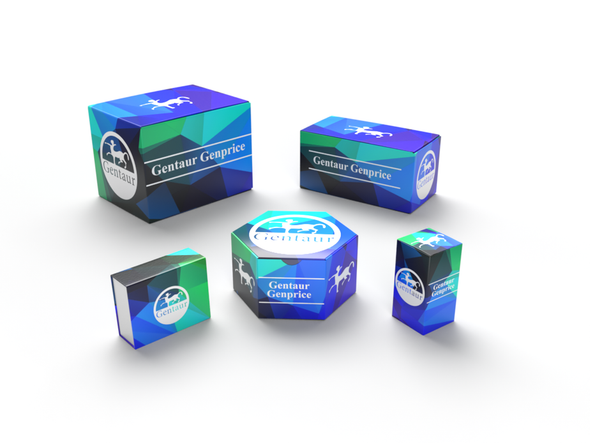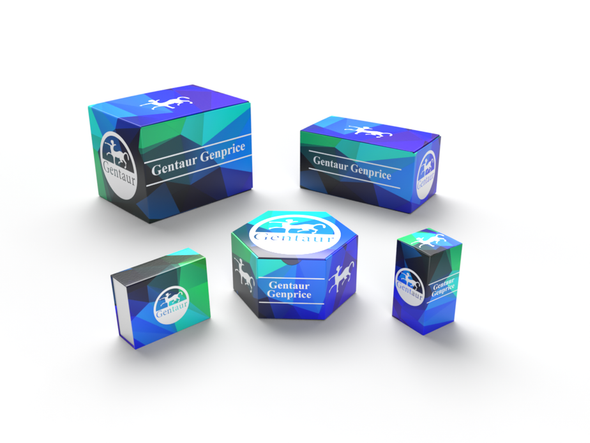Description
CD9 Antibody | 8531 | Gentaur UK, US & Europe Distribution
Host: Rabbit
Reactivity: Human
Homology: Predicted species reactivity based on immunogen sequence: Cat: (90%) , Bovine: (89%) , Mouse: (84%) , Rat: (84%) , Boar: (78%)
Immunogen: CD9 antibody was raised against a peptide corresponding to 19 amino acids near the center of human CD9.
Research Area: Cancer, Cell Cycle
Tested Application: E, WB
Application: CD9 antibody can be used for Western blot at 1 - 2 μg/mL.
Antibody validated: Western Blot in human samples. All other applications and species not yet tested.
Specificiy: N/A
Positive Control 1: Cat. No. 1384 - Human Uterus Tissue Lysate
Positive Control 2: N/A
Positive Control 3: N/A
Positive Control 4: N/A
Positive Control 5: N/A
Positive Control 6: N/A
Molecular Weight: Predicted: 25 kDa
Observed: 25 kDa
Validation: N/A
Isoform: N/A
Purification: CD9 Antibody is affinity chromatography purified via peptide column.
Clonality: Polyclonal
Clone: N/A
Isotype: IgG
Conjugate: Unconjugated
Physical State: Liquid
Buffer: CD9 Antibody is supplied in PBS containing 0.02% sodium azide.
Concentration: 1 mg/mL
Storage Condition: CD9 antibody can be stored at 4˚C for three months and -20˚C, stable for up to one year. As with all antibodies care should be taken to avoid repeated freeze thaw cycles. Antibodies should not be exposed to prolonged high temperatures.
Alternate Name: CD9 Antibody: CD9 molecule, MIC3, MRP-1, BTCC-1, DRAP-27, TSPAN29, TSPAN-29
User Note: Optimal dilutions for each application to be determined by the researcher.
BACKGROUND: CD9 Antibody: CD9 is a member of the transmembrane 4 superfamily, also known as the tetraspanin family. Like other tetraspanins, CD9 is a cell surface glycoproteins play a role in many cellular processes including differentiation, adhesion, and signal transduction (1) . CD9 expression plays a critical role in the suppression of cancer cell motility and metastasis. In one study, the knockdown of CD9 expression suppressed the metastatic capacity of human breast cancer cells (2) , while other results have shown the opposite effect, suggesting that different proteins associated with CD9 account for its abilities to promote or suppress metastasis (3) .










